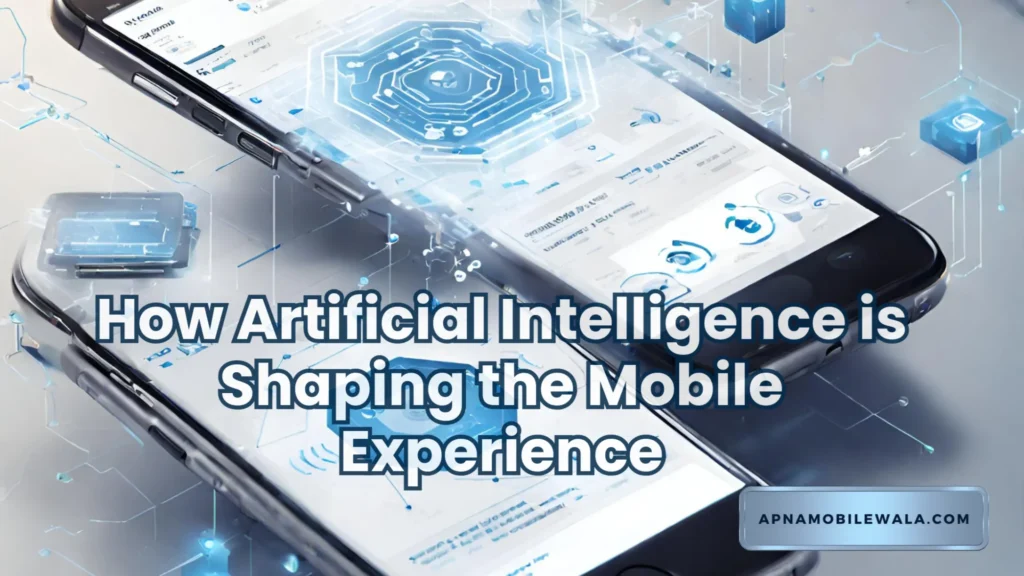Can Your Phone Talk Back? The Rise of AI Assistants and Their (Almost) Sentient Conversations
Remember the days of clunky voice commands and robotic responses from your phone? Those days are fading fast. Today’s AI assistants like Siri, Google Assistant, and Alexa are engaging in increasingly natural conversations, blurring the lines between machine and (almost) sentient being.
But can your phone truly talk back, or is it just a clever illusion? Let’s delve into the fascinating world of AI assistants and explore how they’re changing the way we interact with technology.
From Simple Commands to Complex Conversations: AI assistants have come a long way from just setting alarms or playing music. They can now answer complex questions, hold conversations that flow naturally, and even adapt their responses based on your tone and context.
The Power of Machine Learning:
This magic is powered by machine learning. By analyzing massive amounts of data, AI assistants learn to recognize speech patterns, understand natural language, and generate responses that are relevant and (dare we say?) engaging.
The Illusion of Sentience:
While impressive, it’s important to remember that AI assistants are not sentient beings. They don’t possess consciousness or independent thought. They’re sophisticated algorithms that are really good at mimicking human conversation.
The Benefits of (Almost) Sentient Interactions: Despite the lack of true sentience, AI assistants offer a plethora of benefits:
- Convenience: Imagine getting directions, making calls, or controlling your smart home devices all through voice commands. It’s a hands-free revolution!
- Accessibility: For people with disabilities, AI assistants can be a bridge to technology, allowing them to interact with their phones in a way that might not have been possible before.
- Entertainment: AI assistants can tell jokes, play games, or even hold casual conversations, providing a bit of lighthearted interaction on the go.
The Future of AI Assistants: The future of AI assistants is bright. We can expect even more natural and nuanced conversations, integration with a wider range of devices, and the ability to anticipate our needs before we even ask.
The Ethical Considerations: As AI assistants become more sophisticated, ethical considerations arise. Issues like data privacy, potential biases in responses, and the emotional impact of interacting with a machine that seems almost human will need to be addressed.
Can Your Phone Talk Back? Not quite yet in the way science fiction portrays it. But with advancements in AI, our phones are becoming more conversational, offering a glimpse into a future where human-machine interaction feels more natural and intuitive than ever before. The question isn’t whether our phones can talk back, but how we’ll navigate this new era of (almost) sentient conversations.
Advantages of Artificial Intelligence (AI):
- Efficiency and Automation: AI excels at automating repetitive tasks, freeing up human time and resources for more complex endeavors. Imagine robots handling assembly lines in factories or AI-powered software processing vast amounts of data in a fraction of the time it would take humans.
- Enhanced Decision-Making: AI can analyze massive datasets to identify patterns and trends that humans might miss. This can lead to better decision-making in various fields, from business strategy to scientific research.
- Improved Accuracy and Precision: AI can perform tasks with a level of accuracy and precision that surpasses human capabilities. For example, AI-powered surgical robots can perform minimally invasive procedures with greater precision, reducing complications.
- Innovation and Creativity: AI can be a powerful tool for innovation. It can help generate new ideas, explore vast design spaces, and even compose music or write different kinds of creative content.
- Accessibility and Assistance: AI assistants like Siri or Alexa can provide assistance to people with disabilities, allowing them to control their environment or access information more easily.
- 24/7 Availability: AI systems can work tirelessly, performing tasks and monitoring systems around the clock without breaks or fatigue.
Disadvantages of Artificial Intelligence (AI):
- Job Displacement: One of the biggest concerns surrounding AI is its potential to automate jobs currently done by humans. This could lead to unemployment and economic disruption in certain sectors.
- Lack of Creativity and Empathy: While AI can be creative in certain aspects, it currently lacks true human creativity and empathy. Tasks requiring these skills, such as writing a heartfelt novel or providing emotional support, will likely remain in the human domain.
- Bias and Fairness: AI algorithms can perpetuate biases present in the data they are trained on. This can lead to unfair or discriminatory outcomes, highlighting the importance of ensuring fairness and ethical considerations in AI development.
- Explainability and Transparency: Understanding how complex AI systems reach their decisions can be difficult. This lack of transparency can raise concerns about accountability and make it challenging to identify and address potential biases.
- Safety and Security: As AI becomes more advanced, ensuring its safe and secure development and deployment is crucial. Mitigating the risks of misuse or unintended consequences of powerful AI systems is an ongoing challenge.
- Ethical Considerations: The development and use of AI raise a multitude of ethical questions. Issues like privacy, job displacement, and the potential for autonomous weapons require careful consideration and responsible development practices.
Overall, AI is a powerful technology with the potential to revolutionize many aspects of our lives. However, it’s important to be aware of both its advantages and disadvantages. By acknowledging the challenges and working towards responsible development, we can ensure that AI is used for the benefit of humanity.
Benefits of AI assistants
AI assistants like Siri, Google Assistant, and Alexa have become ubiquitous, integrated into our phones, homes, and even cars. But what exactly makes them so beneficial? Here’s a closer look at the advantages AI assistants bring to our lives:
Convenience at Your Fingertips (or Voice Command):
- Hands-Free Help: Imagine controlling your music, setting alarms, or making calls without touching your phone. AI assistants make everyday tasks a breeze, freeing your hands for other things.
- Multitasking Made Easy: Need to check the weather while making breakfast? AI assistants allow you to get things done simultaneously, boosting your overall efficiency.
- Smart Home Command Center: Dim the lights, adjust the thermostat, or lock the doors – all with your voice. AI assistants streamline smart home management, creating a more comfortable and automated living environment.
Accessibility for Everyone:
- Bridge to Technology: For people with disabilities, AI assistants can be a game-changer. Voice commands allow them to interact with their devices and the world around them in new ways.
- Multilingual Support: Many AI assistants can understand and respond in multiple languages, breaking down language barriers and making technology more accessible for a wider audience.
- Information at Your Fingertips: Need to know the capital of Mongolia or convert measurements on the fly? AI assistants provide instant access to information, empowering you with knowledge on demand.
Beyond Just Commands: A Touch of Personality
- Entertainment on the Go: Feeling bored? Ask your AI assistant to tell you a joke, play music, or read the news headlines. They can be a source of lighthearted entertainment during commutes or downtime.
- Personalized Experience: Some AI assistants can learn your preferences and adjust their responses accordingly. Imagine news updates tailored to your interests or music recommendations based on your listening habits.
- A Friendly Companion: While not truly sentient, AI assistants can offer a touch of companionship, especially for those who live alone. A simple “good morning” or a quick chat about the weather can brighten someone’s day.
Looking Ahead: The Future of AI Assistants
As AI technology continues to evolve, we can expect even greater benefits from our digital companions:
- More Natural Conversations: Interactions will feel increasingly human-like, with better understanding of context and emotions.
- Proactive Assistance: AI assistants might anticipate your needs, suggesting tasks or offering reminders before you even ask.
- Integration Across Devices: A seamless experience across all your devices, from your phone to your smart speaker to your car, will become a reality.
However, with these advancements come important considerations:
- Data Privacy: As AI assistants become more integrated into our lives, data privacy concerns need to be addressed. Understanding how your data is collected and used is crucial.
- Ethical Biases: AI assistants are not immune to bias. It’s important to be aware of potential biases in their responses and to hold developers accountable for creating fair and inclusive technology.
Overall, AI assistants offer a multitude of benefits, making our lives more convenient, accessible, and even a bit more entertaining. As technology progresses, the way we interact with these digital companions will continue to evolve, shaping a future where human-machine interaction feels more natural and helpful than ever before.
Most Advanced AI assistant
AI assistants like Siri, Google Assistant, and Alexa have become ubiquitous, integrated into our phones, homes, and even cars. But what exactly makes them so beneficial? Here’s a closer look at the advantages AI assistants bring to our lives:
Convenience at Your Fingertips (or Voice Command):
- Hands-Free Help: Imagine controlling your music, setting alarms, or making calls without touching your phone. AI assistants make everyday tasks a breeze, freeing your hands for other things.
- Multitasking Made Easy: Need to check the weather while making breakfast? AI assistants allow you to get things done simultaneously, boosting your overall efficiency.
- Smart Home Command Center: Dim the lights, adjust the thermostat, or lock the doors – all with your voice. AI assistants streamline smart home management, creating a more comfortable and automated living environment.
Accessibility for Everyone:
- Bridge to Technology: For people with disabilities, AI assistants can be a game-changer. Voice commands allow them to interact with their devices and the world around them in new ways.
- Multilingual Support: Many AI assistants can understand and respond in multiple languages, breaking down language barriers and making technology more accessible for a wider audience.
- Information at Your Fingertips: Need to know the capital of Mongolia or convert measurements on the fly? AI assistants provide instant access to information, empowering you with knowledge on demand.
Beyond Just Commands: A Touch of Personality
- Entertainment on the Go: Feeling bored? Ask your AI assistant to tell you a joke, play music, or read the news headlines. They can be a source of lighthearted entertainment during commutes or downtime.
- Personalized Experience: Some AI assistants can learn your preferences and adjust their responses accordingly. Imagine news updates tailored to your interests or music recommendations based on your listening habits.
- A Friendly Companion: While not truly sentient, AI assistants can offer a touch of companionship, especially for those who live alone. A simple “good morning” or a quick chat about the weather can brighten someone’s day.
Looking Ahead: The Future of AI Assistants
As AI technology continues to evolve, we can expect even greater benefits from our digital companions:
- More Natural Conversations: Interactions will feel increasingly human-like, with better understanding of context and emotions.
- Proactive Assistance: AI assistants might anticipate your needs, suggesting tasks or offering reminders before you even ask.
- Integration Across Devices: A seamless experience across all your devices, from your phone to your smart speaker to your car, will become a reality.
However, with these advancements come important considerations:
- Data Privacy: As AI assistants become more integrated into our lives, data privacy concerns need to be addressed. Understanding how your data is collected and used is crucial.
- Ethical Biases: AI assistants are not immune to bias. It’s important to be aware of potential biases in their responses and to hold developers accountable for creating fair and inclusive technology.
Overall, AI assistants offer a multitude of benefits, making our lives more convenient, accessible, and even a bit more entertaining. As technology progresses, the way we interact with these digital companions will continue to evolve, shaping a future where human-machine interaction feels more natural and helpful than ever before.
List of AI assistants
Here’s a list of some of the most popular AI assistants and their strengths:
Major Players:
- Google Assistant:
- Strengths: Deep integration with Google Search, vast knowledge base, excels at finding information and answering complex questions, constantly learning and improving.
- Apple’s Siri:
- Strengths: Praised for natural language processing abilities, focus on user privacy, integrates seamlessly with Apple devices, offers a more personal touch in interactions.
- Amazon Alexa:
- Strengths: Reigns supreme in the smart home space, exceptional compatibility with various smart devices, excels at controlling your home environment through voice commands.
Other Notable AI Assistants:
- Microsoft’s Cortana:
- Strengths: Strong contender for Windows users, good integration with Microsoft products and services.
- Samsung’s Bixby:
- Strengths: Primarily focused on Samsung devices, making strides in understanding natural language and controlling smart home features.
Beyond the Big Names:
- Baidu XiaoI: A popular AI assistant in China, known for its integration with Baidu services and Mandarin language processing.
- Alibaba AliGenie: Another major player in China, focused on Alibaba’s ecosystem and smart home integration.
- Clova by LG: Primarily used on LG devices, Clova offers voice control for smart home appliances and entertainment systems.
Choosing the Right AI Assistant:
The best AI assistant for you depends on your individual needs and preferences. Here’s a quick guide:
- Need a master of information? Google Assistant.
- Prioritize privacy and Apple devices? Siri.
- Building a smart home ecosystem? Amazon Alexa.
- Windows user? Consider Microsoft Cortana.
- Samsung Galaxy user? Bixby might be a good fit.
Remember, this is not an exhaustive list, and new AI assistants are constantly emerging. Do some research to see which options integrate best with the devices and services you use the most.
The Rise of AI: Jobless Future or Evolving Landscape?
Artificial intelligence (AI) is rapidly transforming our world, automating tasks and impacting industries across the board. This progress has sparked a major concern: will AI lead to mass unemployment and a jobless future?
The Threat of Job Displacement:
There’s no denying that AI poses a threat to certain jobs. Tasks that are repetitive, rule-based, and involve data analysis are prime targets for automation.
- Manufacturing: Robots are becoming increasingly sophisticated, capable of performing assembly line tasks with greater precision and efficiency.
- Customer service: Chatbots powered by AI can handle basic customer inquiries, potentially reducing the need for human representatives.
- Transportation: Self-driving vehicles could significantly impact jobs in the transportation sector, from truck drivers to taxi drivers.
The Upskilling and Reskilling Opportunity:
However, the picture isn’t entirely bleak. AI is also creating new opportunities:
- New Job Roles: AI development, data analysis, and cybersecurity are just a few of the new job fields emerging in the age of AI. These roles require human skills like creativity, problem-solving, and critical thinking, which AI cannot replicate.
- Upskilling and Reskilling: Existing jobs will evolve, requiring workers to develop new skills to stay relevant. Educational institutions and businesses will need to adapt to provide training opportunities for this workforce transformation.
The Human-AI Collaboration:
The future of work likely involves a collaborative approach, with humans and AI working together. AI can handle the mundane tasks, freeing up human potential for innovation, strategy, and tasks requiring social and emotional intelligence.
Beyond Job Displacement:
The impact of AI extends beyond job displacement. Here are some other considerations:
- Economic Inequality: AI could exacerbate income inequality if the benefits of automation are concentrated in the hands of a few. Policies might be needed to ensure a more equitable distribution of the gains from AI.
- Ethical Considerations: As AI becomes more sophisticated, ethical questions around bias, transparency, and accountability will need to be addressed.
What Does the Future Hold?
The impact of AI on the job market is complex and uncertain. While job displacement is a real concern, it’s likely to be a gradual process, not an overnight shift.
Here’s what we can do to prepare:
- Invest in education and training: Equipping ourselves and future generations with the skills needed to thrive in the AI age is crucial.
- Embrace lifelong learning: The ability to adapt and learn new skills will be essential in the ever-evolving job market.
- Advocate for responsible AI development: Policies and regulations should ensure that AI is developed and used ethically.
AI is here to stay, and its impact on the job market is undeniable. However, it doesn’t have to be a dystopian future of mass unemployment. By focusing on education, reskilling, and collaboration, we can create a future where humans and AI work together to build a more prosperous and equitable world.
Thanks for Reading!
- How Will We Access Virtual Worlds on Our Phones?
- The Rise of the Subscription Phone
- Sony Xperia 1 VI Price and Review
- Realme 12 Pro Plus Review and Price
- The Future of Mobile Gaming with AR, VR



